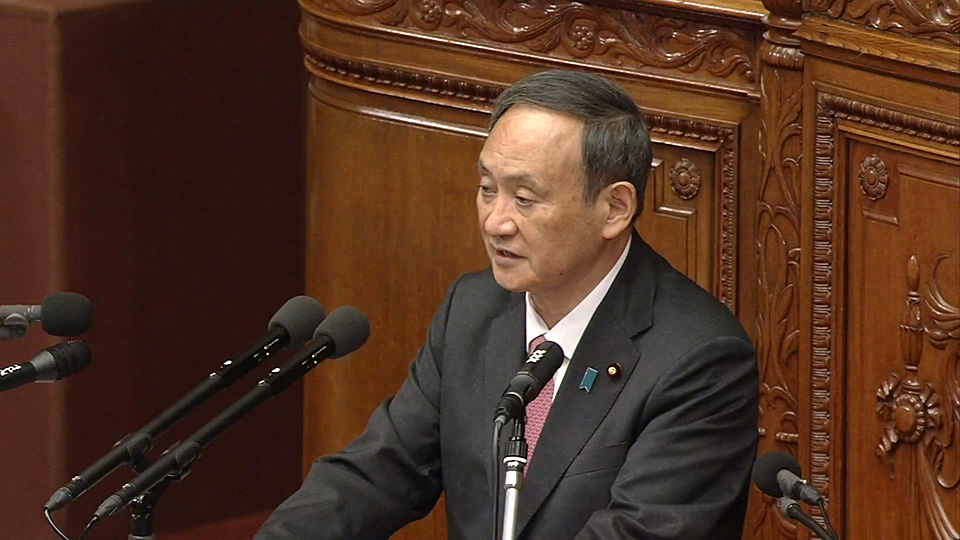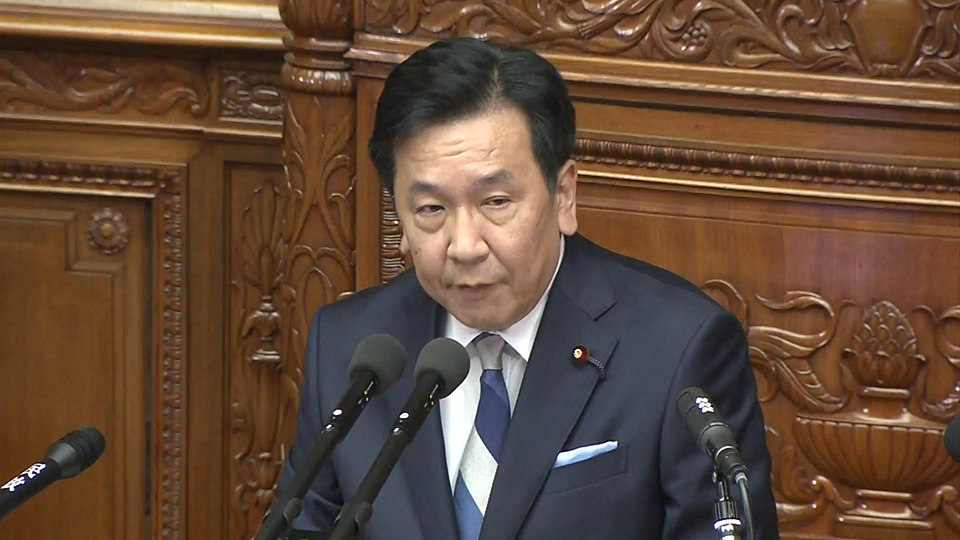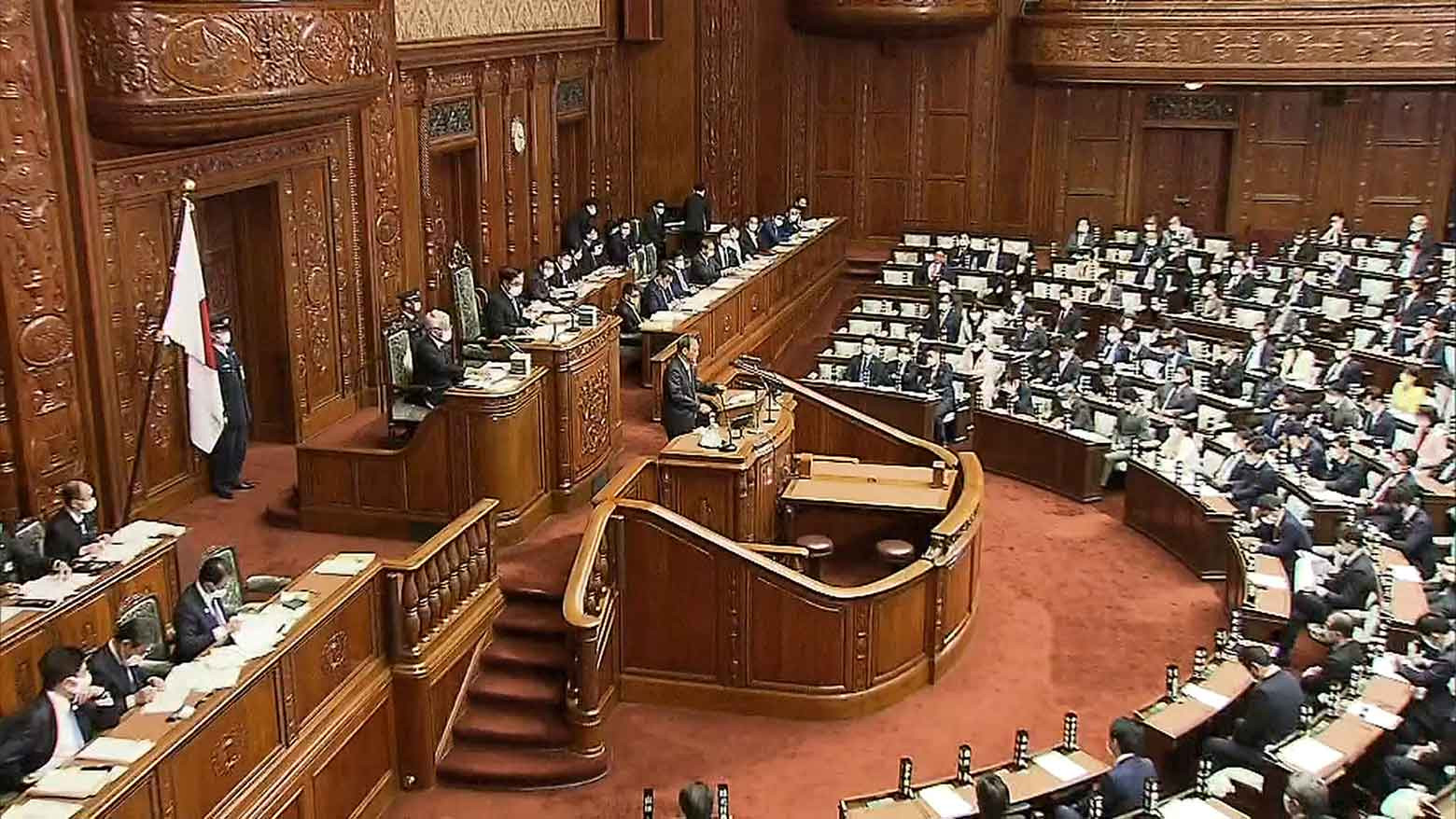Suga’s promises
On Monday, Suga delivered his first policy speech in the Diet as leader. Top of his agenda was the coronavirus pandemic.
“We will do everything to prevent an explosive increase in infections and protect people's health and lives,” said the prime minister. “We will also resume social and economic activities and revitalize the economy.”
And as part of the push to revive economic activities, he promised to expand coronavirus testing capabilities at airports. Suga said the aim is for 20,000 people, notably from the business and educational sectors, to be able to enter the country every day by the end of next month.

The pledge that garnered the most attention pertained to climate change. Suga announced that Japan will aim to become carbon neutral by 2050.
“The key is innovation, including next-generation solar cells and carbon recycling,” he said. “We will accelerate research and development with an eye on practical usage. We will lead the global green industry and create a virtuous cycle of the economy and the environment.”
On the diplomatic front, Suga said that the issue of Japanese nationals abducted by North Korean agents is one of the top priorities for his administration. He said he would be willing to meet North Korean leader Kim Jong Un without preconditions.
Suga also spoke about China, saying he would look for areas of common interest, but firmly assert Japan’s position on controversial matters.
He also described South Korea as an extremely important neighbor, but said he would urge Seoul to take action to restore a healthy relationship. For example, “the wartime labor issue” -- in which the South Korean Supreme Court ordered a Japanese firm to compensate plaintiffs who say they were forced to work during World War Two -- is among the problems that have strained relations between the two countries.
Suga’s first controversy
The upper and lower houses both held question-and-answer sessions from Wednesday to Friday.
Edano Yukio, leader of the opposition Constitutional Democratic Party, raised a controversial issue that Suga didn't mention — the prime minister’s overruling of the nominations of six academics to be new members of the Science Council, Japan's leading academic body. At the heart of the controversy is a suggestion that Suga rejected the nominees because they have been outspoken on controversial issues.
“You said that you didn't see the list of 105 scholars that were recommended by the council. But wasn't it your own decision not to appoint six of them?” Edano asked. “Who made the decision and on what basis?”
Suga refused to answer the question saying it was a human resources issue, but opposition lawmakers are unlikely to let the controversy fade away.

Edano, who was Chief Cabinet Secretary at the time of the 2011 nuclear accident in Fukushima, said he welcomes the prime minister's proposal of net-zero carbon emissions by 2050.
“To make it come true, however, Japan should not increase its dependence on nuclear power,” Edano stressed and asked Suga how much Japan would depend on nuclear power in 2050.
Suga said the government will pursue all options, including nuclear power, but the policy is to reduce nuclear dependence as much as possible.
An election on the horizon
The government and ruling coalition parties plan to seek Diet approval for legislation to secure coronavirus vaccines and to bring into effect an Economic Partnership Agreement between Japan and the UK.
Suga has, at longest, until next October to push his agenda, but lawmakers are expecting an election much sooner than that. A new prime minister in search of a mandate could call a snap election at any time.

